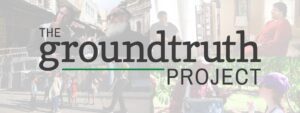 Across the United States access to local news is rapidly eroding. The decline was accelerated by the COVID-19 pandemic during which nearly 1,800 communities across the United States lost basic news coverage altogether. In addition, thousands more now turn to hollowed out newsrooms that have been decimated. Since the pandemic began, over 90 local newsrooms across America have closed and over 36,000 reporters have been laid off, furloughed, or experienced pay cuts. At the worst time imaginable, the bottom is falling out for many local news outlets across the country.
Across the United States access to local news is rapidly eroding. The decline was accelerated by the COVID-19 pandemic during which nearly 1,800 communities across the United States lost basic news coverage altogether. In addition, thousands more now turn to hollowed out newsrooms that have been decimated. Since the pandemic began, over 90 local newsrooms across America have closed and over 36,000 reporters have been laid off, furloughed, or experienced pay cuts. At the worst time imaginable, the bottom is falling out for many local news outlets across the country.
Report for America (RFA), an initiative of the GroundTruth Project, seeks to transform communities and strengthen democracy by eliminating American news deserts. RFA is an innovative national service program that matches talented, diverse journalists with local newsrooms from coast to coast.
Rather than building new organizations, RFA creates partnerships, placing journalists (known as corps members) as full-time employees for one to three year terms with local newspapers, radio stations, nonprofit newsrooms, and weeklies.
Funding of $250,000 from the Arthur Vining Davis Foundations will contribute to hiring local reporters to fill critical news gaps nationwide for these communities. “By securing employment for qualified journalists where there is demonstrated need, and in a way that eases costs for select news agencies to fill gaps in their coverage, RFA is taking innovative steps to address the local news crisis in America,” writes John Churchill, AVDF Director of Programs.
Specifically, the grant will support seven full-time local reporters in public radio newsrooms across the country. These reporters will fill critical news gaps, produce at least 350 stories in a year, and grow public media’s representation across the RFA corps. As local newspapers dwindle, public media
S digital and audio-based reporting meets a growing need particularly in rural communities. AVDF recognizes the value of filling this gap and is committed to providing funding for digital and radio reporting, through partnering with RFA and others such as the Solutions Journalism Network.
Since 2017, RFA has supported more than 500 reporters across 49 states, with 40% of these journalists hired by their host newsrooms and another 40% hired by other regional or national newsrooms. In addition to recruiting and matching journalists with local newsrooms, RFA provides valuable ongoing services such as training, mentorship, editorial support, and networking opportunities. Moreover, RFA works with the partner newsrooms themselves to help improve fundraising efforts and increase leads. Two recent cohorts of newsrooms have had demonstrable fundraising success, raising a combined total of $9.3M from over 16,000 donors.
Importantly, RFA believes that newsrooms should reflect the communities they serve. Almost half of the RFA corps is made up of journalists of color, and one-third of the corps is bilingual. RFA does not prescribe coverage areas, as communities know their needs best. Rather, RFA encourages reporting driven by under-reported themes—such as education, religion, environment, and health—or under-reported communities—from people of color to veterans, the elderly, and working families. Indeed, corps members’ reporting has had a direct impact in local communities, from holding governments accountable for a lack of clean water, to driving tangible change such as removing hazardous and environmentally-harmful waste, reopening playgrounds, and extending eviction bans to prevent homelessness due to the COVID-19 pandemic.
